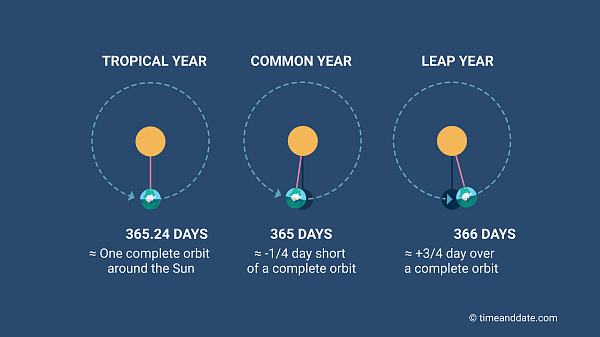
Why Do We Have Leap Years?
A leap year is a year with 366 days instead of the usual 365 days. This is done to keep our calendar in sync with the Earth’s orbit around the Sun.
The Earth’s orbit around the Sun is not exactly 365 days long. It actually takes about 365.2422 days. This means that every year, we gain about 0.2422 days. Over time, this would cause our calendar to drift out of sync with the seasons.
To prevent this, we add an extra day to the calendar every four years. This extra day is called a leap day. Leap day is added to the month of February, which is the shortest month of the year.
The History of Leap Years
The concept of leap years has been around for centuries. The first known leap year was introduced by the Roman emperor Julius Caesar in 46 BC. Caesar’s calendar, known as the Julian calendar, added an extra day to the month of February every four years.
The Julian calendar was used for over 1,600 years, but it was not perfect. The Julian calendar added an extra day to the calendar every four years, regardless of whether or not the year was actually 365.2422 days long. This meant that the calendar gradually drifted out of sync with the seasons.
In 1582, Pope Gregory XIII introduced a new calendar, known as the Gregorian calendar. The Gregorian calendar is the calendar that we use today. The Gregorian calendar adds an extra day to the calendar every four years, except for years that are divisible by 100 but not by 400. This means that the Gregorian calendar is more accurate than the Julian calendar.
Leap Years in South Africa
South Africa uses the Gregorian calendar, so leap years occur every four years, except for years that are divisible by 100 but not by 400. The next leap year will be in 2024.
The Importance of Leap Years
Leap years are important because they keep our calendar in sync with the Earth’s orbit around the Sun. Without leap years, our calendar would gradually drift out of sync with the seasons. This would make it difficult to plan agricultural activities and other events that are based on the seasons.
Conclusion
Leap years are an important part of our calendar. They help to keep our calendar in sync with the Earth’s orbit around the Sun. Without leap years, our calendar would gradually drift out of sync with the seasons, which would make it difficult to plan agricultural activities and other events that are based on the seasons.
